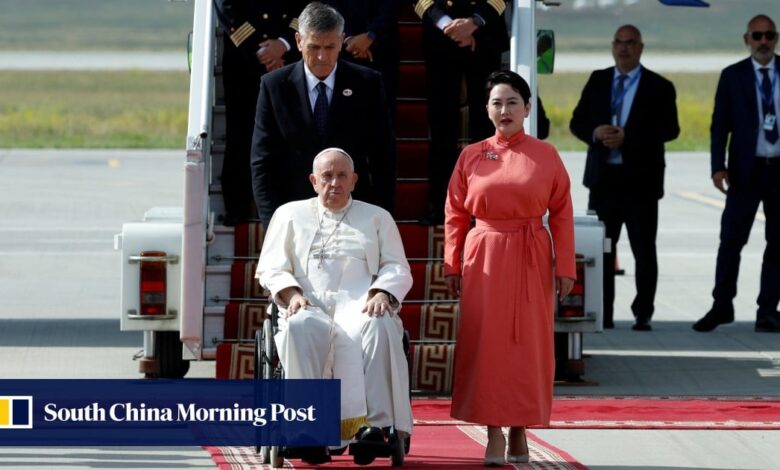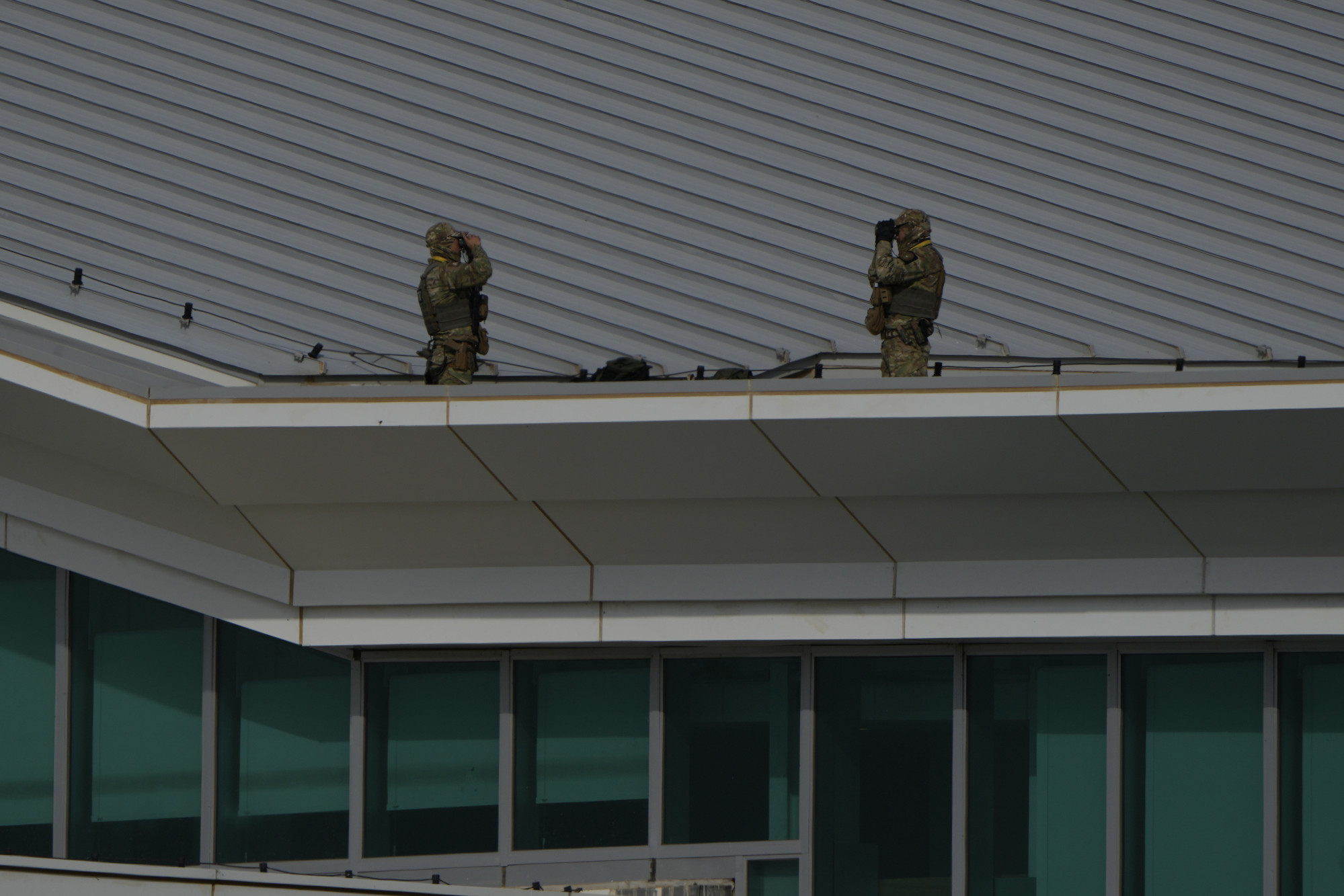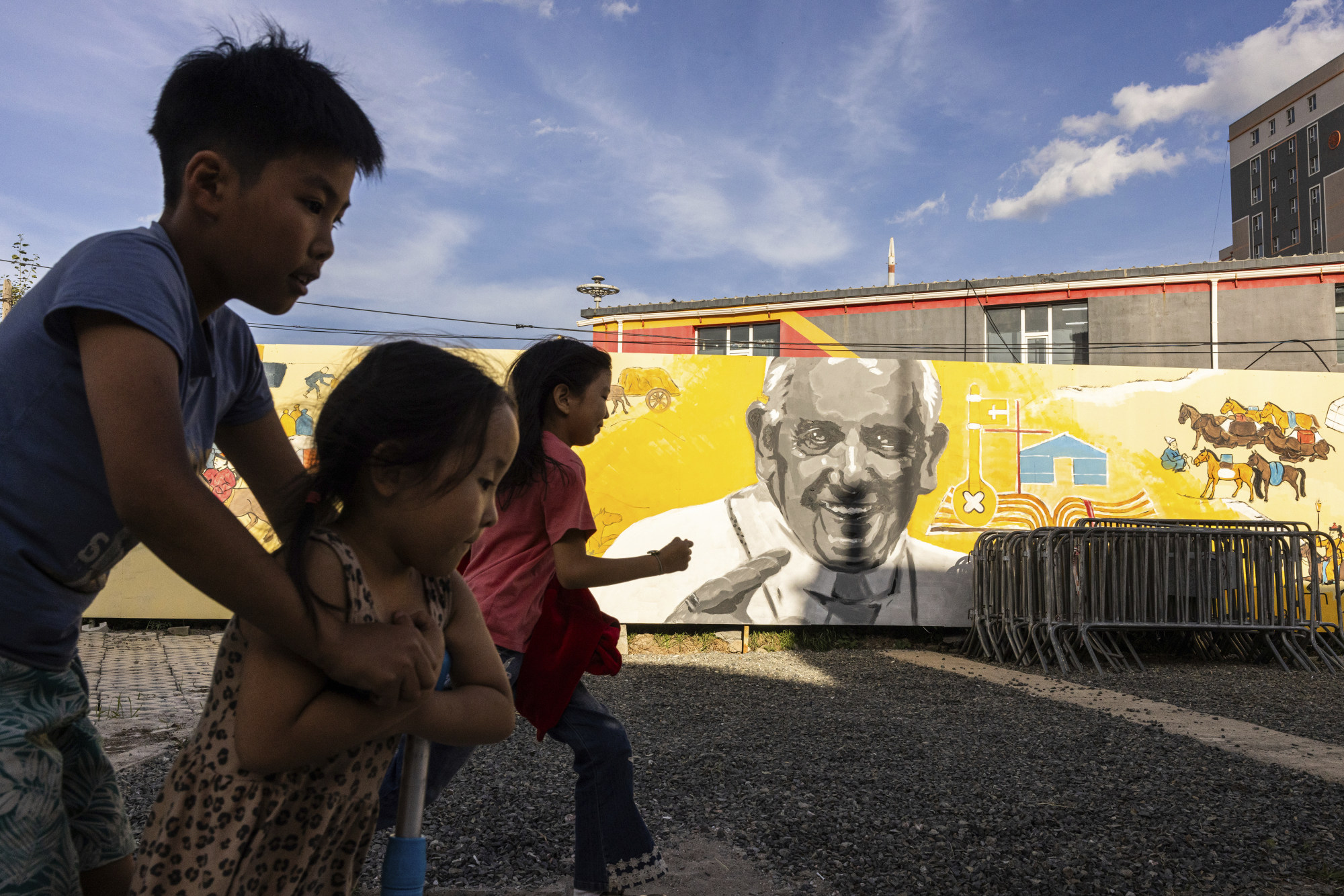Pope Francis starts first visit to Mongolia, a nation of 1,400 Catholics on China’s doorstep

[ad_1]
The visit – Francis’ 43rd voyage in his decade as global head of the Catholic Church – is also crucial in keeping the door open for improved Vatican ties with Beijing and Moscow, which have yet to offer the Pope an invite.
Pope Francis draws criticism for extolling Russian imperialist tsars
Pope Francis draws criticism for extolling Russian imperialist tsars
“It’s a way to not give up, to remind them ‘I’m here!’” Chambon said. “It’s a way not to just stay in Rome and wait for things to happen but to jump in.”
The Argentine pontiff left Rome on Thursday bound for the Mongolian capital Ulaanbaatar, arriving Friday morning local time following a nine-hour journey.
Francis’s flight passed through Chinese airspace, affording the pontiff a rare opportunity to send a note of greetings to President Xi Jinping. Vatican protocol calls for the pope to send such greetings whenever he flies over a foreign country.
In his message to Xi, Francis expressed “greetings of good wishes to your excellency and the people of China”.

“Assuring you of my prayers for the well-being of the nation, I invoke upon all of you the divine blessings of unity and peace,” Francis said.
The trip will be a stamina test for the pope, who continues to travel widely despite undergoing a hernia operation in June and pain in his knee which has forced him to use a wheelchair.
After a day of rest, the pontiff’s itinerary Saturday includes a welcome ceremony, meetings with President Ukhnaa Khurelsukh and Prime Minister Luvsannamsrai Oyun-Erdene, and a first address to authorities, diplomats and members of civil society.
Shanghai bishop approved by Pope as Vatican chides China for ‘violation’
Shanghai bishop approved by Pope as Vatican chides China for ‘violation’
He will meet the Catholic community – which includes just 25 priests and 33 nuns, only two of them Mongolian – later Saturday in Saints Peter and Paul Cathedral. Its circular nave resembles a “yurt”, the Mongolian nomads’ traditional tent dwelling.
The Jesuit pope addresses an interreligious meeting Sunday, where the rector of Ulaanbaatar’s Russian Orthodox Church is expected to be present with a delegation, and later presides over a mass inside a newly built ice hockey arena.
Pilgrims from nearby countries are expected at the mass, the Vatican said, including from Russia, China, South Korea, Thailand, Vietnam, Kazakhstan, Kyrgyzstan and Azerbaijan.

Once part of the empire of Genghis Khan, Mongolia is dependent on Russia for energy imports and on China for the export of its raw materials, primarily coal.
But while toeing a neutral line with its powerful neighbours, it has engaged in a “third neighbour” policy, strengthening relations with other nations, including the United States, Japan and South Korea, for balance.
That makes Mongolia potentially helpful for Vatican relations with both Beijing and Moscow. The Holy See last year renewed a deal on the thorny issue of bishop appointments with China, and Francis has sought to broker an end to the war in Ukraine with Russia.
Francis may use his trip to the former Soviet satellite state, a democracy since just 1992, to hammer home democratic principles.
Hong Kong Bishop Stephen Chow appointed to College of Cardinals by Pope Francis
Hong Kong Bishop Stephen Chow appointed to College of Cardinals by Pope Francis
A major coal industry corruption scandal provoked street protests in December, eroding public trust amid a weak economy, high inflation and major gaps between rich and poor.
Chambon, a fellow at Singapore’s Asia Research Institute, said Francis may take a page from last year’s Kazakhstan visit, during which he warned authorities they have a responsibility to govern well.
“The pope is not taking sides but is really putting politicians in front of their responsibilities,” Chambon said.
“‘Who are we serving, are we honest, are we caring for the poor and marginalised, are we taking care of the entire nation in its religious and ethnic diversity?’
“He plays the games but he asks the hard questions.”
Francis, who plans in October to publish an update to his seminal 2015 “Laudato Si’” a global call to action for the environment, will also likely bring attention to the impact of climate change on Mongolia’s ecosystems.
Together with mining and overgrazing, rising temperatures and their effects are fuelling desertification across swathes of the country.
Severe cold, flooding and drought have killed off herds on the vast grasslands, forcing nomads who make up one-third of the population to migrate to Ulaanbaatar, now surrounded by shantytowns inhabited by displaced herders.
Additional reporting by Associated Press
[ad_2]
Source link





